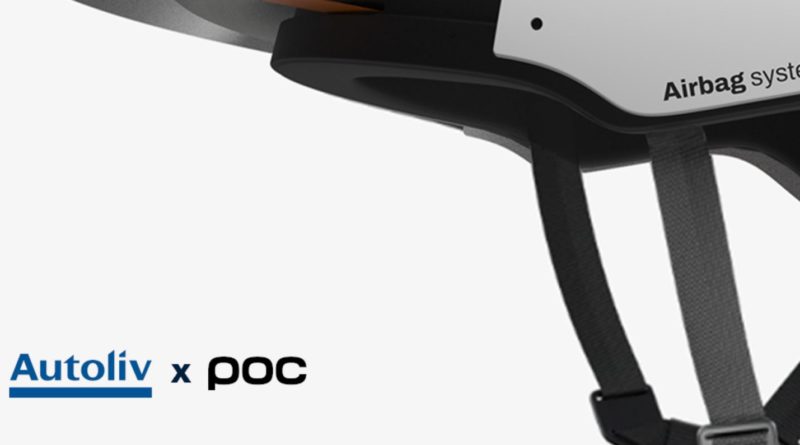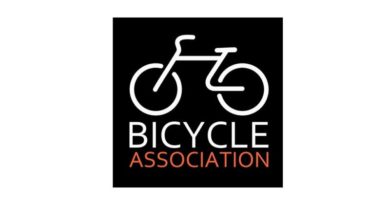POC partners automotive safety firm for airbag helmet study
The cycling market may soon see greater adoption of airbag helmet technology with the announcement that POC has partnered Autoliv, an NYSE listed automotive safety business, to study and develop the concept.
Made famous by Hövding, but also since adopted by brands like Evoc, the airbag helmet concept has proven itself in independent safety tests.
POC will now roll with the idea, drawing on Autoliv’s knowledge to first study then develop the idea for the cycling and snow markets, but going further to account for the expanded criteria that the eBike market brings up, namely higher average speeds. The idea is that the airbag acts first as an initial energy absorber, triggered ahead of the main shell of the helmet that further protects.
Already underway with the partnership, a a pre-study conclusion from the Autoliv research team is that a cycle helmet with an integrated airbag can significantly improve protection and reduce the consequences of impacts to cyclists. The combination of both absorbing technologies enables a reduction of the peak linear head acceleration and significantly reduced head injury risk in impact tests. The pre-study also showed that the protection improvements could be reached without critically compromising the design, weight, or comfort of a helmet designed with integrated airbag technology.
“Autoliv is committed to the vision of Saving More Lives and to providing world class life-saving solutions for mobility and society. The safety of vulnerable road users, such as bicyclists and e-bike riders, is high on our agenda. Therefore, it was natural to collaborate on this initiative with POC, a leader in bicyclist safety, to explore how to improve helmet protection in current standard testing and more challenging scenarios, such as higher impact speeds,” says Dr. Cecilia Sunnevång, Vice President Research, Autoliv.
The pre-study showed up particularly favourable results in the reduction of injury from linear impacts. It is estimated that the risk for a bicyclist to sustain moderate to fatal head injuries is reduced from 80% to 30% in a 20 km/h (12 mph) impact.
“Our safety mission drives everything we do, and we always challenge conventional thinking in order to improve protection. Helmets are tested and certified in a laboratory setting and can never fully address all the real-world variables of bike crashes. Together with Autoliv, who are world-renowned and have some of the most advanced testing and research facilities in the field, we have embarked on a development journey with airbag technology, asking ourselves what could be done to excel in current test scenarios and push the envelope towards even more shock absorbing capacity,” says Oscar Huss, Chief Product Officer, POC.
Autoliv has now formed Mobility Safety Solutions (MSS) to extend its business into new market areas beyond light vehicles and occupant safety.



